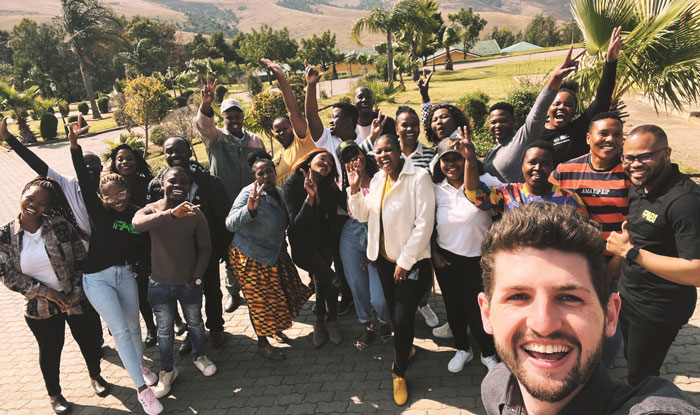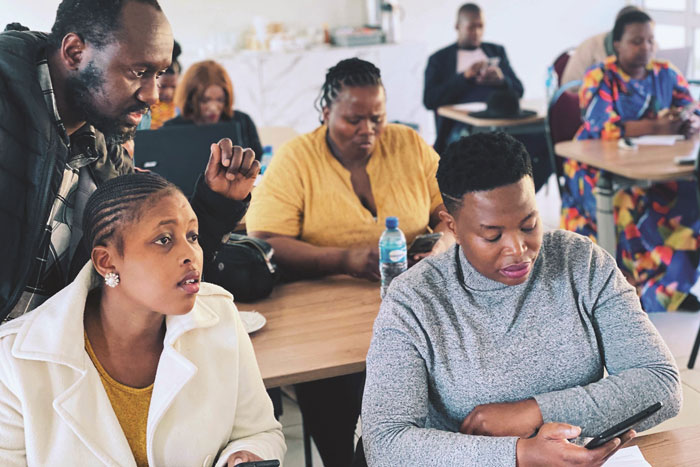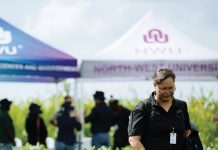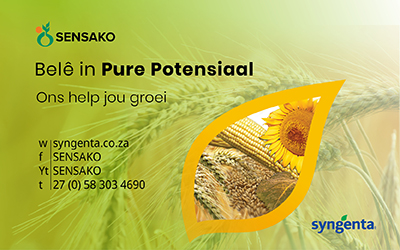Pests and diseases of crops have the potential to impact a producer’s yield and may affect trade depending on the quarantine status of that pest or disease. Therefore, effective monitoring and surveillance of the relevant pests and diseases are an important component for implementing impactful management strategies and policies.
However, serious limitations to monitoring and surveillance continuously arise, as extension services are not always able to reach affected farms in a timely and efficient manner. To mitigate these limitations, the Biosecurity Africa App (a product of Cropwatch Africa) and the Innovation @UP Information Hub platform were developed to gather information on the spread of agricultural pests and diseases across South Africa. These apps allow users to efficiently capture, analyse and visualise vital information from widespread regions, including those which were previously difficult to access.
Should a producer require further diagnoses of the pests and diseases recorded on these apps, the Information Hub can be used to link these producers to the Grain Pest and Disease Diagnostic Clinic based at the Forestry and Agricultural Biotechnology Institute (FABI) for further diagnostic confirmation.

Exposure to technologies
In August of 2022, members from the University of Pretoria, including Dr Osmond Mlonyeni (Innovation Africa @UP programme manager), Dr Mahlane Godfrey Kgatle (Grain SA), Ntombizodwa Maduna (National Grain Research Programme (NGRP) diagnostic clinic technician) and Matthew Jackson (MSc candidate, FABI) travelled to the Eastern Cape to promote the new digital biosecurity platforms for monitoring South African pests and diseases of agriculture.
Although commercial grain production in the Eastern Cape currently lags behind other provinces, its rich soils and ideal climatic conditions give the province immense potential in terms of the contribution it could bring to the grain industry and the South African economy. It is therefore critical that producers and researchers in the region have exposure to technologies and tools that can help to strengthen their ability to increase yields.
The Cropwatch Africa and @UP Information Hub platforms were introduced to local extension officers and researchers from the Eastern Cape during a four-day-long workshop in Stutterheim and Mthatha. The workshop was conducted in collaboration with Social Coding SA, a non-profit organisation which provides digital education to rural communities across South Africa.
Dohne Research Centre in Stutterheim was the venue for the first three days of workshops, where training was given to both extension officers (agricultural advisors and senior agricultural advisors) and researchers from across the five regions (Alfred Nzo, Amathole, Chris Hani, Joe Gqabi and OR Tambo) of the province. Training on how to send disease and pest samples to the FABI diagnostic clinic was also provided.
The final workshop was presented to Ukhanyo Farmer Development (UFD) in Mthatha. UFD is a non-profit, youth-owned, female-led commercial grain development entity, which was formed by 36 young graduates. The UFD’s aim is to address the challenges which hinder small-scale farmers from reaching commercial status in the Eastern Cape. UFD offers mentorship to 2 600 farmers across all five high-potential maize-growing regions of the Eastern Cape. The surveillance apps and training provided will help these farmers to increase their yields and the quality of their produce.
Potential information collected via the digital platforms from over 2 000 plots in the Eastern Cape will add critical insight on the spread and outbreak patterns of pests and diseases. It will contribute to building a food-secure and economically prosperous grain industry well beyond the province. Efforts are underway to introduce this technology to producers throughout South Africa, in order to expand its impact by reaching an even wider geographic user range.
This work is being funded by the Department of Science and Innovation, the Technology Innovation Agency and Innovation Africa at the University of Pretoria along with its partners.




















